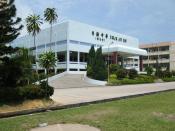Just In Time Inventory Systems
Overview
JIT is an integrated manufacturing process designed to achieve high-volume production using the smallest inventories possible. JIT systems maintain parts flow so that inventories do not build up at any stage of the manufacturing process, allowing rapid completion and requiring active management of the production process. JIT strives to maintain minimal all inventories: raw materials, works-in-progress, and finished goods (Waters-Fuller, 1995).
Most manufacturing historians trace the Just In Time (JIT) inventory system to Taichii Ohno and Shigeo Shingo. Ohno and Shingo were production managers, and later vice presidents, of Toyota recognized as the originators of the JIT system. The two men identified the central role that inventory plays in production. The Toyota Production System, as Ohno and Shingo termed the JIT system, also included elements of cellular manufacturing and quality management (Waters-Fuller, 1995).
While Ohno and Shingo are credited with developing the complete JIT systems, some of their philosophies trace as far back as the late 18th century.
Eli Whitney, better known as the inventor of the cotton gin, developed and perfected the concept of interchangeable parts. Henry Ford later streamlined this concept and developed a complete manufacturing strategy using the assembly line. It was Ford's process, applied to Allied war production in World War II, that ultimately attracted Japanese manufacturers, especially Toyota (Sakakibara et al., 1997).
Characteristics of JIT inventory systems
JIT systems vary from organization to organization, but always have two guiding principles in common: the use of processes that allow systematic identification of operational inefficiencies and the use of tools for quickly correcting or adjusting for those problems after identification. JIT systems require a number of elements working in unison: steady production, flexible material and labor resources, a focus on quality, proactive maintenance, reliable component supply, fast manufacturing setup, and operational...


